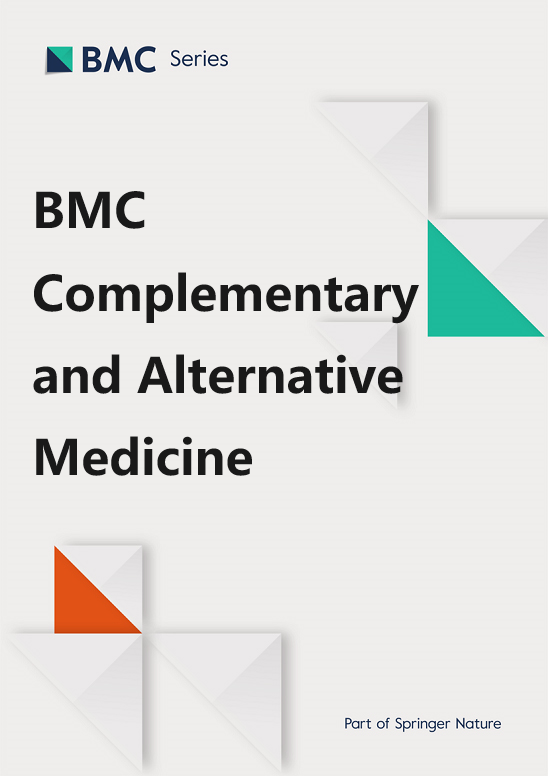Varieties of silence – a mixed-methods study exploring reasons and justifications for nondisclosure of the use of complementary therapies to physicians in Finland
IF 3.4
2区 医学
Q1 Medicine
引用次数: 0
Abstract
In health care, two in three users of complementary therapies (CT) stay silent about their CT use. Disclosure of CT use to physicians is important for patient safety, participation, and shared decision-making. Common reasons for CT nondisclosure include patients´ expectations of physicians’ unaccepting response to disclosure, physicians not asking, and patients believing it is unnecessary. This study aimed to increase understanding of patient silence. We investigated how the reasons for nondisclosure of CT use reported by CT users were associated with the frequency of CT disclosure and how these associations and reported justifications to keep silent reflect patient silence among the study participants. This mixed-methods study used existing data from the non-probability-based online survey (n = 6802) targeted to CT users among the general population in Finland. A qualitative structured tabular thematic analysis was conducted for the selected 342 brief texts describing the reasons and justification for not telling physicians about CT use. The associations between the frequency of CT disclosure and the reasons for CT nondisclosure were analysed by crosstabulations and binary logistic regression analysis with SPSS (v28). Three types of patient silence were revealed. Avoidant silence illustrates the respondents coping with the fear of unwanted response from a physician and avoiding the expected negative consequences of CT disclosure. Precautionary silence exemplifies respondents striving to prevent the reoccurrence of previously experienced frustration of wishes to be seen and heard as CT users. Conditional silence portrays the self-confidence of respondents who assessed their need to disclose CT use to physicians on a case-by-case basis. Silence, for some patients, may serve as a way of warding off past and possible future fears and frustrations related to CT disclosure. It is important to recognise different types of patient silence related to CT disclosure to enhance patient participation and shared decision-making in health care. Efforts are needed to provide health policy decision-makers with information about CT users’ lived experiences with CT communication in health care.沉默的多样性--一项混合方法研究,探讨芬兰医生不透露使用补充疗法的原因和理由
在医疗保健领域,每三位辅助疗法(CT)使用者中就有两位对自己使用 CT 的情况保持沉默。向医生披露使用 CT 的情况对于患者的安全、参与和共同决策非常重要。不透露 CT 使用情况的常见原因包括:患者认为医生不会接受患者透露 CT 使用情况;医生没有询问;患者认为没有必要。本研究旨在加深对患者沉默的理解。我们调查了 CT 使用者所报告的不披露 CT 使用情况的原因与 CT 披露频率之间的关联,以及这些关联和所报告的保持沉默的理由如何反映出研究参与者中患者的沉默。这项混合方法研究使用了非概率在线调查(n = 6802)中的现有数据,调查对象是芬兰普通人群中的 CT 使用者。研究人员对所选的 342 个简短文本进行了定性结构化表格主题分析,这些文本描述了不告诉医生使用 CT 的原因和理由。使用 SPSS (v28) 进行交叉统计和二元逻辑回归分析,分析了 CT 披露频率与不披露 CT 的原因之间的关联。研究揭示了患者沉默的三种类型。回避型沉默说明受访者害怕医生不想要的回应,并避免披露 CT 的预期负面影响。预防性沉默说明受访者努力防止以前经历过的挫折再次发生,即希望作为 CT 使用者被看到和听到。有条件的沉默体现了受访者的自信,他们根据具体情况评估是否需要向医生披露使用 CT 的情况。对于某些患者来说,沉默可能是一种抵御过去和未来可能出现的与 CT 披露相关的恐惧和挫折的方式。重要的是要认识到与 CT 披露相关的不同类型的患者沉默,以加强患者在医疗保健中的参与和共同决策。需要努力为医疗政策决策者提供有关 CT 使用者在医疗保健中与 CT 沟通的生活经历的信息。
本文章由计算机程序翻译,如有差异,请以英文原文为准。
求助全文
约1分钟内获得全文
求助全文
来源期刊

BMC Complementary and Alternative Medicine
INTEGRATIVE & COMPLEMENTARY MEDICINE-
CiteScore
7.00
自引率
0.00%
发文量
0
审稿时长
3 months
期刊介绍:
BMC Complementary Medicine and Therapies is an open access journal publishing original peer-reviewed research articles on interventions and resources that complement or replace conventional therapies, with a specific emphasis on research that explores the biological mechanisms of action, as well as their efficacy, safety, costs, patterns of use and/or implementation.
 求助内容:
求助内容: 应助结果提醒方式:
应助结果提醒方式:


